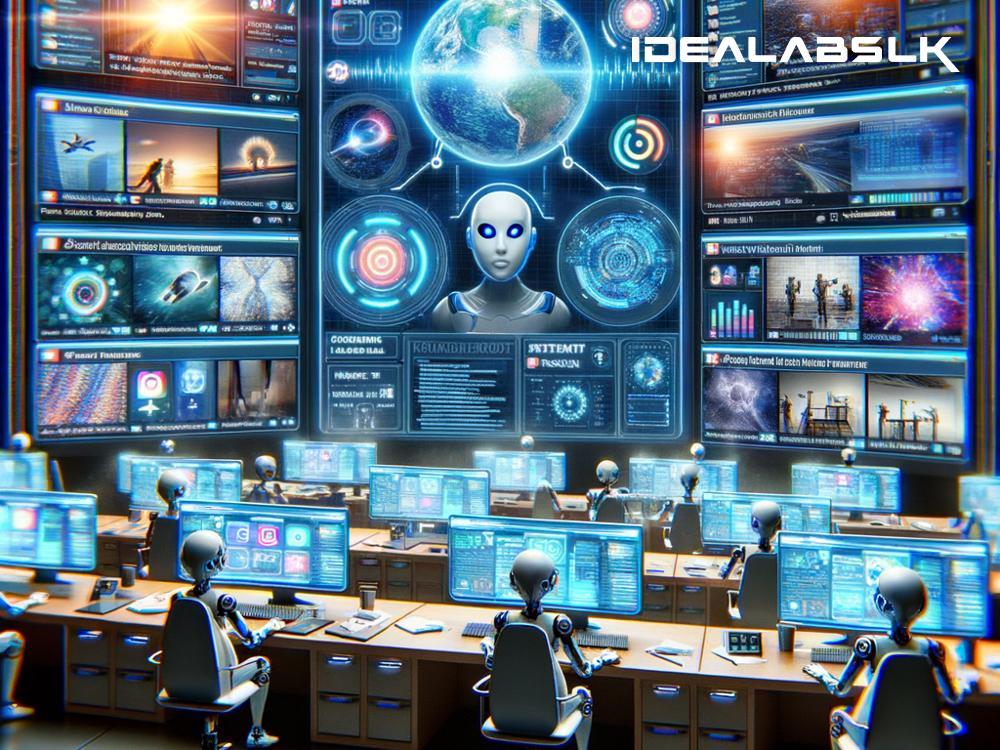The Future of Content Moderation with AI: A Simple Guide
In the digital world, where billions of pieces of information float around, ensuring the safety and appropriateness of content that gets posted online is crucial. But, with the sheer volume of data, human moderation alone struggles to keep up. That's where Artificial Intelligence (AI) steps in, promising to reshape the landscape of content moderation. Let’s dive into what the future holds for content moderation with AI, breaking it down into simple terms.
Understanding Content Moderation and AI
First off, content moderation is like the internet’s filter system. It’s the process of sorting through user-generated content (like comments, videos, or pictures) to determine if it’s suitable for the platform it’s on. AI, or Artificial Intelligence, refers to machines or software designed to think and make decisions like a human would.
Today’s Landscape
As of now, AI in content moderation usually works alongside human moderators. AI helps in flagging inappropriate content, which human moderators then review. However, AI's role has been somewhat limited. It's great at catching obvious issues, like spam or explicit images, but it struggles with nuances like sarcasm or cultural context.
The Future is Bright—and Smart
As we move forward, AI is set to become much smarter and more nuanced in its understanding. Here’s how:
1. Learning Nuances and Contexts
Future AI systems will get much better at understanding context. By using advanced techniques in natural language processing and machine learning, AI will be able to distinguish between harmful content and jokes among friends, or understand that a seemingly violent phrase in a video game context is not a real-world threat.
2. Real-time Moderation
Imagine posting something and having it checked for appropriateness in the blink of an eye. Future AI will make this possible by moderating content in real-time, ensuring harmful content doesn’t even get a second of airtime.
3. Personalized Moderation
What’s considered inappropriate can vary greatly from one person to another. Future AI systems could allow for personalized content moderation settings, giving users more control over what they see and don’t see online.
4. Global and Local Sensitivities
As AI becomes more sophisticated, it will learn to navigate the complex web of global and local cultural sensitivities. This means content will be moderated not just with a one-size-fits-all approach but with an understanding of diverse cultural norms and values.
5. Reducing Human Bias
Humans, by nature, have biases. Sometimes, these biases can influence content moderation decisions. AI, when well-designed, can help reduce this bias, ensuring a fairer moderation process.
6. Protecting Moderators
Content moderation can take a toll on human moderators, who are exposed to harmful content daily. With AI taking on more of the heavy lifting, human moderators can be shielded from the worst of it, making their jobs less stressful and emotionally draining.
Challenges Ahead
However, the road to the future isn’t without bumps. There are significant challenges that need addressing:
- Privacy Concerns: As AI systems delve deeper into understanding context and nuances, they’ll need access to more data, raising privacy concerns. Ensuring robust data protection measures will be critical.
- Misuse: There's always the risk of these powerful AI tools being misused, such as governments using them for censorship. Striking a balance between moderation and freedom of speech will be a delicate task.
- Complexity of Language: Language is complex and constantly evolving. Keeping up with new slang, languages, and the endless ways people communicate will continue to be a hurdle for AI.
The Bottom Line
The future of content moderation with AI is both exciting and fraught with challenges. As AI grows smarter and more nuanced, it has the potential to create safer, more personalized online spaces. However, navigating privacy concerns, misuse, and the complexities of human communication will require ongoing effort, innovation, and collaboration.
In the end, the goal is to harness AI's power to foster online environments where creativity and expression flourish, free from harm and hate. And while there's still a long way to go, the progress made thus far gives optimism for the journey ahead.

